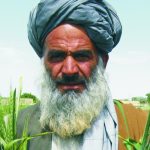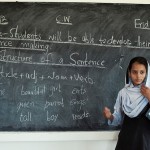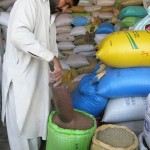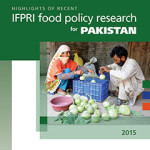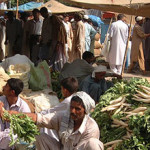On January 25, 2017, IFPRI will launch a new book on Pakistan's agricultural transformation in Washington, D.C. IFPRI's cutting-edge evaluations and capacity building activities have helped shape a policy research agenda for the country to achieve economic growth and poverty reduction.
Food Policy Research Supporting Policies in Pakistan
Sartaj Aziz, Advisor to the Prime Minister of Pakistan on Foreign Affairs, recalled IFPRI's partnership that championed evidence-based research and policy options to end poverty, hunger and malnutrition.
Human Capital Accumulation in Pakistan
MOTIVATION Human capital is one of the most vital resources to achieve economic development and ensure food security. In the late 1980s in Pakistan, growth in the supply of educated workers was higher than the demand for them in urban areas, while at the same time, a marked increase of educated workers emerged in post-Green >> Read more
Agricultural Production Credit
MOTIVATION Since the 1950s, agricultural credit (a type of loan that helps farmers to undertake new investments or adopt new technologies) has been a mainstay in helping farmers bridge the gap between income and expenditures. Agricultural credit has been a basic component of the Pakistan agricultural policy strategy to improve investments in the rural sector. >> Read more
Pakistan’s Wheat Policy
"[There] was absolutely no need to continue the ration system to 1980s, and yet it continued. But for the IFPRI’s study, it may have continued even now." - Dr. Zafur Altaf, Secretary of Pakistan's Ministry of Food and Agriculture, Food Policy in the Dynamics of Global Agriculture, a documentary video by AGCOM International.
Pakistan Strategy Support Program
This program has contributed to pro-poor economic growth and enhanced food security through a strengthened national capacity for designing and implementing evidence-based policy reforms.
